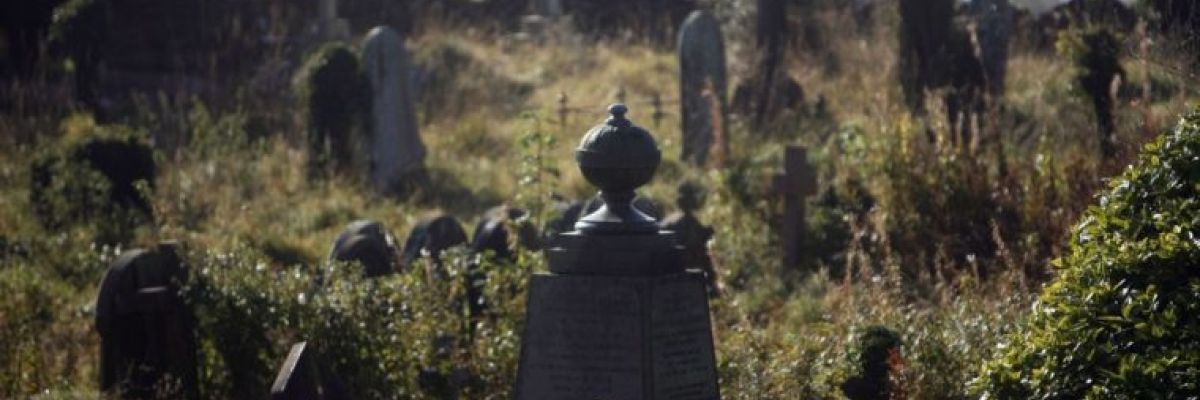
Old funeral traditions could soon be dead and buried
Lack of burial space, funeral costs and increasing population is leading to new ways of disposing of bodies, reports Oscar Quine
At the Vienna Exposition of 1873, Sir Henry Thompson, a leading surgeon and Queen Victoria’s private doctor, was struck by a cutting-edge piece of equipment being demonstrated by Italian Professor Brunetti: the crematorium. Through the application of fire, Brunetti’s device could reduce a whole human corpse into a neat pile of ashes within a matter of hours.
Sir Henry returned to the UK, strident in his belief that cremation offered the solution to the problems associated with traditional burials. The method, he believed, was “a necessary sanitary precaution against the propagation of disease”.
Cremation took hold slowly, only becoming fully legal in the UK in 1955. But today, three in four Britons opt for it over burial.
Fatal problems
A century on – with population numbers growing rapidly – how we dispose of the dead is once again being questioned. And with scientists working on futuristic methods, “we could be on the cusp of another evolution in terms of how we treat the body after death,” according to Dr Sarah Churchill.
She is head of The Corpse Project which, in conjunction with the Wellcome Trust, has looked at shifting social attitudes and technological advancements around the treatment of the deceased. “You have to remember,” she says, “the change to cremation was far more dramatic than anything that’s being proposed now.”
Nevertheless, pressure for this “evolution” is high. Many UK cemeteries are nearing capacity, with a number of councils announcing they are unable to bury the dead. As a result, funeral costs have increased by 80 per cent in the past decade.
In Norwich, families have had to join six-week-long waiting lists to bury their loved ones, as grave-diggers struggle to keep up with demand. The London boroughs of Hackney and Tower Hamlets have stopped providing burial services, and a burial plot in the capital can cost £4,500. And Cornwall Council announced this month that many of its cemeteries are now full.
In January, the Ministry of Justice announced a top-level summit to discuss the crisis. It is predicted that cemetery space will run out entirely in 20 years.
Modern alternatives
A number of alternative funeral services have emerged, catering for distaste of traditional ceremonies, a desire to reduce undertaking costs, and a heightened environmental awareness. In natural burials, usually in woodland or countryside settings, the body is interred at a shallower depth – allowing it, once decomposed, to be recycled by the surrounding ecology. Sea burials are seen as another ecologically friendly way to go, while The Urban Death Project proposes the composting of human bodies. Meanwhile more and more people are leaving their bodies to science.
But none of these options signals the fundamental shift in body disposal that Dr Churchill believes will soon be necessary because of increasing population and environmental degradation. A host of other processes are in development: ecolation, promession and resomation.
In ecolation and promession, the corpse is frozen. Ecolation then uses a drying technique, while promession relies on vibration, to separate out solid components from any liquids, which are disposed of. Toxic elements are removed and the physical remains, which resemble cremated ashes, are returned to the deceased person’s family. Both ecolation and promession are zero emission, and recycle energy released by the corpse.
These techniques are still in the early stages and have encountered some problems. For Dr Churchill, resomation is the strongest contender to fully replace the practices of burial and cremation. It involves a body being placed in a tank containing water and lye, which is then heated to 160C. The tank is pressurised so boiling cannot occur. Instead, the body is broken down into its constituent parts over a three-hour period. Any liquids are disposed of and the remaining “ashes”, mainly calcium phosphate from bones, are again given to the family.
Society has become more open to alternative ways of disposing the dead by the growth in secularism and increased exposure to other cultures and their practises. However, says Dr Churchill, ours is a time that treats death as taboo. Dying is seen as almost shameful, something that happens out-of-sight with little said about it.“If everybody took half a day a year to think about death and their body, it would be a good thing.”
Read more at: https://inews.co.uk/explainers/iq/graves-burials-science-sarah-churchill-ecolatiopromession-and-resomation/